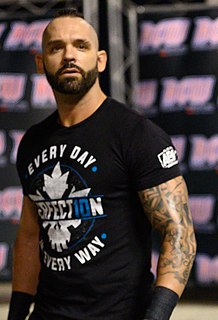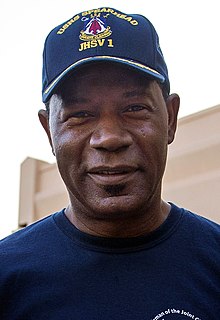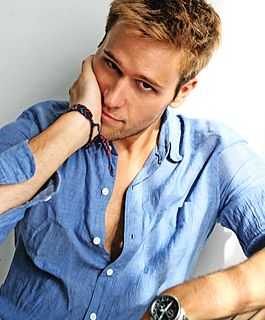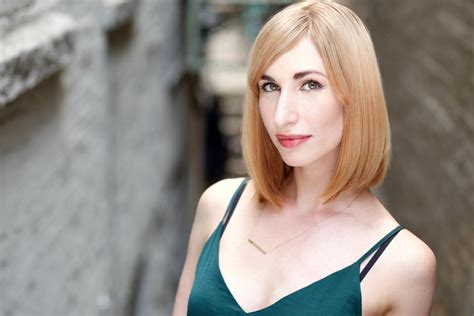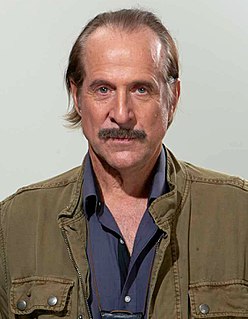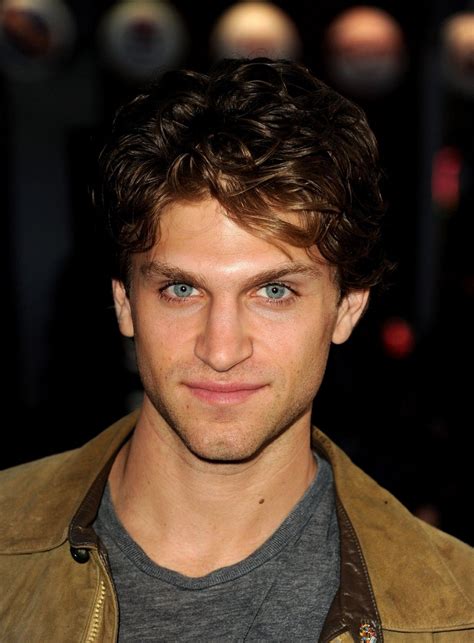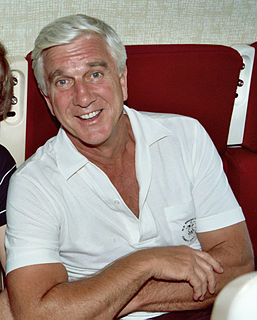A Quote by Campbell Scott
If you're playing a good guy, you show some darkness. If you're playing a dark guy, you show something different, like humor, that will mix it up and hopefully surpass the audience's expectations. What I'm battling all the time is complacency in the audience. I try to bring a little mystery to what might happen because that engages people more.
Related Quotes
When you're playing a good character, you have an idea that you're playing the hero and the good guy. Actually, I think you're more stymied playing the good guy than you are the bad guy. As the bad guy, you have no inhibitions. Nothing stops you from doing what it is you feel you have to do. You do it because it's what's required.
When you're on stage performing stand-up, things only happen one time. I've done bits where I improv a joke, and people are dying. The next show, I try to repeat it, I can't do it. Because with the first audience that was our moment. It can't happen the same way again. We were all there: a certain type of people were at that show and we all got it.
I like the way that Dexter mixed humor, dark humor and tragedy, in a way I don't think that I've seen another show do. To handle those tonal shifts with so much confidence. Normally, you can mix humor and dark humor, you can mix dark humor and tragedy, but to mix all three... There are just moments with Robin and Reuben, the next door neighbors, that are just funny.
Playing villains is very liberating because unlike the leading man, nothing is expected of you. Leading men have to look good, they have to behave in a certain way, they have to fulfill an audience's expectations. But as a bad guy, you have free license to take the audience by surprise. And that's what audiences want - they want unpredictability from their villains. The villain's job is to subvert it.
So much of the time I'm cast as an asshole or a douchebag, or that kind of thing. I'd like to go back to just playing a guy with a good heart. Usually so much of my stuff is ulterior motives or a dark thing to it. Maybe that's what other people see in me, but I feel like I have a warm side, too, humor and fun. I'd like to play a little bit more of that. Feel-good stuff. Why not?
Every city is different for playing, actually. That's one of the hardest things: to play abroad. Because sometimes you know your city and your audience and you know what to play and what people will dance to. And later, you go to a place and you think this thing will work and you start playing and it doesn't work, and you have to be able to go to another side just to try to find what people like or whatever, or, like, try to make people dance as they are more used to. I don't know, it's quite strange - people dance in different parts of Europe in a different way.
It [The Esemblist] is also about the generation of audience members that are watching shows and listening to us at the same time; hopefully, in time, when they listen to our show and then go see a show, they'll realize even more what it takes to make a show, and they'll know even more about everybody on stage, rather than just people above the title of the show.
I make comedies and I always try... I don't try but I allow to have at least 5% of the jokes or have some jokes that I know will be understood by only about 5% of the audience. It's that guy in the corner who gets it and laughs. But he has to have his jokes too. That's part of my audience. Part of my audience is the people who will only get certain things.
What I love most about playing in front of people has something to do with a certain kind of energy exchange. The attention and appreciation of my audience feeds back into my playing. It really seems as if there is a true and equal give and take between performer and listener, making me aware of how much I depend on my audience. And since the audience is different every night, the music being played will differ too. Every space I performed in has its own magic and spirit.
In the stand-up comedy top, there's room for everyone - if you're good, there's room for everyone. You'll put on your own show - no one casts you. You cast your own show as a stand-up comedian. When you get good at stand-up comedy you book a theater and if people show up, people show up. If people don't show up, people don't show up. You don't have a director or a casting agent or anybody saying if you're good enough - the audience will decide.
In episodic television you'll have a good guy who's on every week and that's his show! He's the regular on it, and you're not going to be "gooder" than he is; I mean, he's the guy who's got to solve your problem! So if you're playing a good guy, you have to have a problem, and he's going to solve it for you. And the only really strong dramatic part is the heavy, because the meaner and crueler and rottener you are, the better the good guy looks when he whips ya' at the end because he always is gonna whip ya! So, the best dramatic guest shot is the heavy.

